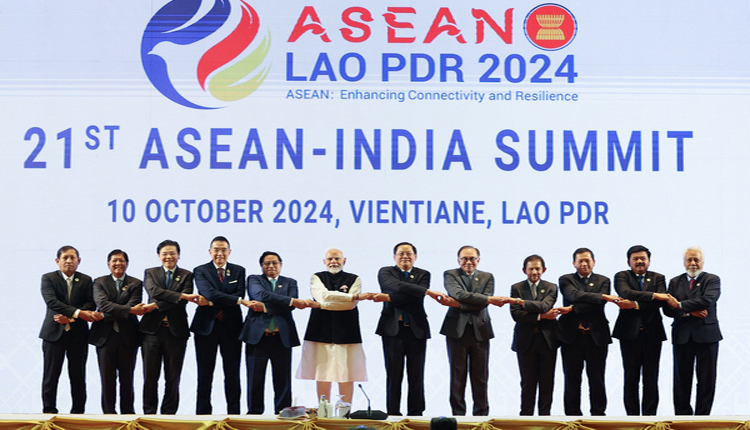New Delhi: Prime Minister Narendra Modi participated in the ASEAN-India Summit 2024 on Thursday, showcasing India’s growing influence among Southeast Asian nations. In a prominent display of unity, PM Modi stood alongside leaders of ASEAN countries in a photograph that highlights India’s pivotal role within the association.
A significant development at the summit was the collective stance taken against China’s assertive actions in the South China Sea. China has been persistently flexing its muscles over territorial claims in the region, leading to heightened tensions with neighbouring countries. In response, India and ASEAN member states have taken a decisive step by proposing the introduction of a Code of Conduct (COC) for the South China Sea. This code aims to establish clear guidelines based on the United Nations Convention on the Law of the Sea (UNCLOS) of 1982, among other international laws.
The adoption of this Code of Conduct is expected to curb China’s unbridled activities in the South China Sea, promoting peace, stability, maritime security, and safeguarding the freedom of navigation for international vessels. Additionally, it seeks to ensure unhindered lawful maritime commerce and the peaceful resolution of disputes in the region. China’s unilateral claims over the entire South China Sea have been a source of ongoing conflict, with frequent attacks on Philippine vessels exacerbating the situation.
The Association of Southeast Asian Nations (ASEAN), established on 8 August 1967, serves as a crucial organisation for political, economic, security, and socio-cultural cooperation among Southeast Asian countries. Its member states include Brunei, Cambodia, Indonesia, Laos, Malaysia, Myanmar, the Philippines, Singapore, Thailand, and Vietnam. India, although not a founding member, holds a significant partnership with ASEAN and was invited to participate in the summit, underscoring its integral role within the bloc.
This strategic move by ASEAN nations, supported by India, marks a unified effort to counterbalance China’s dominance in the South China Sea, ensuring regional stability and protecting the interests of all parties involved.



Comments are closed.